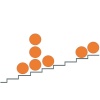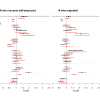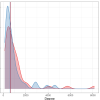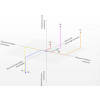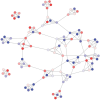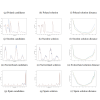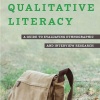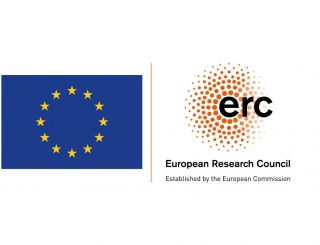PATCHWORK
A network science approach to social cohesion in European societies
Description
As European societies are becoming increasingly unequal, diverse, and polarised, concerns about their cohesion are growing. In this light, it is surprising that social cohesion research has almost entirely ignored one of its core dimensions: relationships. Broad acquaintanceship networks, which connect each individual to hundreds of others through both intimate and superficial relationships, have long been assumed to bind societies together and provide a sense of community and solidarity. Nonetheless, they have hardly been studied empirically due to the technical complexity that the comprehensive study of society-wide networks involves.
This project develops a ground-breaking, network-scientific approach to social cohesion. After designing a theoretical framework for the structural cohesion of societies, it develops a new methodology to study structural cohesion empirically, hybridising two strands of network research in an unprecedented way. The methodology will be implemented in a large-scale, cross-national European survey administered to representative samples of the populations. The survey estimates are used to simulate society-wide networks with the aim of further exploring the resulting macro-level structures. These macro-level structures are then used to specify agent-based models (ABM) to study in more depth how broad acquaintanceship networks influence subjective manifestations of cohesion. Along with the quantitative part of the study, we also use qualitative analysis at different points in the study to better understand what meaning acquaintanceship networks have to people, how they relate to acquaintances, how their networks evolve over time, and how they are related to the social contexts in which they participate and to their attitudes toward other social groups. The qualitative findings will also be used in ABM.
For the first time, we will know how cohesive broad acquaintanceship networks are across categorical fault lines of citizenship, social class, religion, and political orientation for five societies, how real-life inter- and intra-group relationships cluster to form network constellations that expose individuals in unique ways to other social groups, and how these constellations shape subjective manifestations of cohesion such as tolerance, trust, and acceptance of diversity.
The project was financed by the European Research Council, with the ERC Advanced Grant to PI Miranda Lubbers. Apart from Miranda, team members working on the ERC project are Michał Bojanowski, Zhiyi Jin, Yunsub Lee, Nuria Targarona Rifà, and Nigel Van Herwijnen.
See the video introducing the project.
Publications
-
SOCIAL CATEGORIES AND BOUNDARY-MAKING: EXPLORING THE POTENTIAL OF INTERACTIVE VISUAL TOOLS TO STUDY BOUNDARY WORK WITH PERSONAL NETWORKS (2025). Sociological Research Online (Accepted).
-
SOCIAL NETWORKS AND INSTITUTIONAL TRUST IN ECONOMIC DOWNTURNS (2025). European Sociological Review (Advance publication). DOI
-
TOWARDS A UNIFIED CONCEPTUALIZATION OF SOCIAL CAPITAL (2025). Annual Review of Sociology (accepted), 51. DOI
-
CULTURAL AND OPINION DYNAMICS IN SMALL-WORLD "SOCIAL" NETWORKS (2025). Journal of Mathematical Sociology (online first): 1-26. DOI
-
AUTOMATED NAME SELECTION FOR THE NETWORK SCALE-UP METHOD (2024). Field Methods, 36 (3): 249-265. Preprint
-
REVIEW OF "QUALITATIVE LITERACY: A GUIDE TO EVALUATING ETHNOGRAPHIC AND INTERVIEW RESEARCH" (2023). Perifèria. Revista de Recerca i Formació en Antropologia, 28 (2): 240-250. DOI
